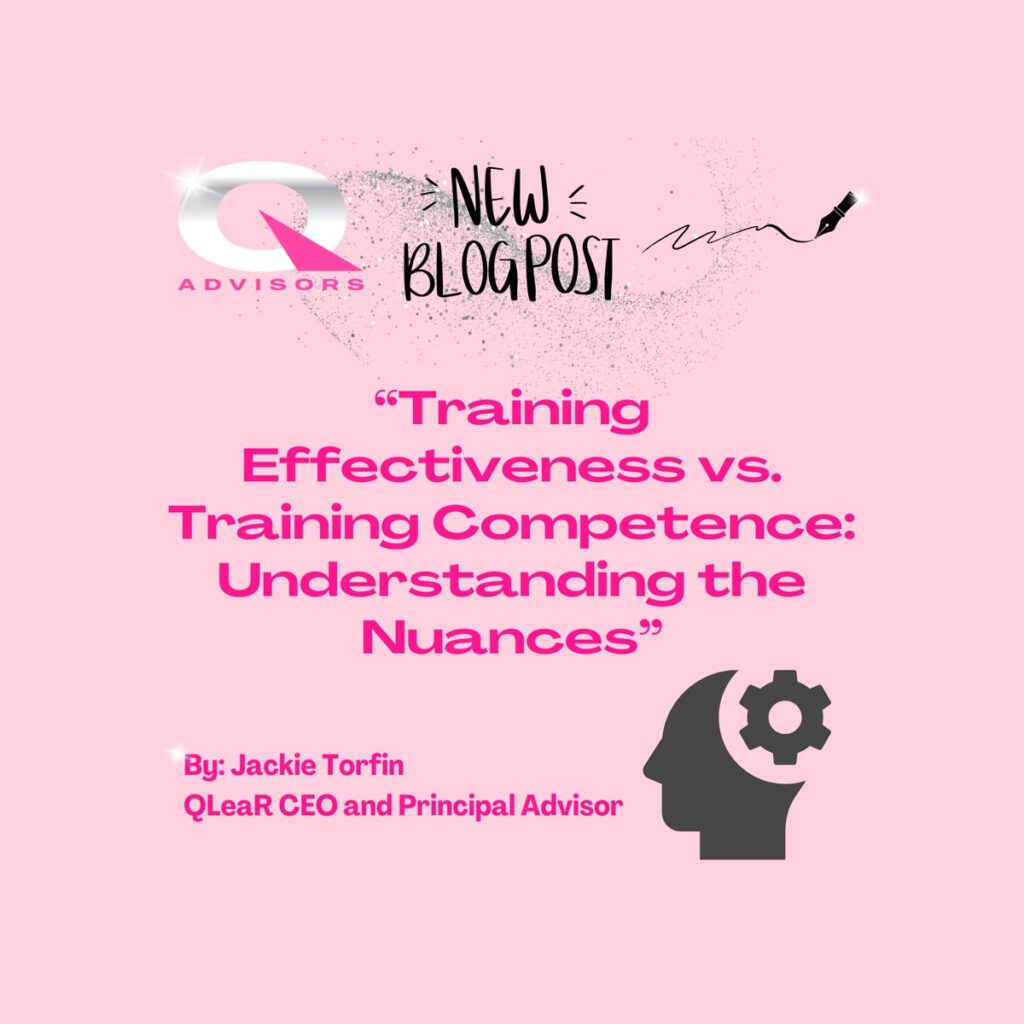How do you discern between two critical concepts within the realm of training: training effectiveness and training competence? While both are vital for optimizing performance, they address different aspects of the training process. Understanding the nuances between these two terms can help organizations tailor their training programs and achieve greater results.
Training effectiveness refers to the degree to which a training program meets its intended objectives and positively impacts the organization’s overall performance. It answers the critical question: “Did this training program achieve the desired outcomes?” This can involve various metrics, including employee performance before and after training, retention of skills learned, changes in behavior on the job, and overall contribution to organizational goals.
To assess training effectiveness, organizations often employ methods such as evaluations, assessments, and feedback mechanisms. Commonly, Level 1 evaluations (reaction) seek immediate feedback after training sessions, while Level 2 (learning) assesses knowledge retention through quizzes or tests. Levels 3 (behavior) and 4 (results) measure the application of skills on the job and organizational impact, respectively.
On the other hand, training competence focuses on the skills, knowledge, and experience that trainees acquire as a result of the training process. It addresses the question: “What skills and knowledge did the participants gain from the training?” Competence is more about the individual’s ability and confidence in using the learned skills in real-world situations.
Training competence can be assessed through practical simulations, on-the-job evaluations, peer reviews, and sometimes self-assessments. It’s essential for employees to possess not just the theoretical knowledge, but also the practical competence to carry it out effectively. Competence is often the ingredient that bridges the gap between education and application, ensuring that employees can navigate their roles successfully.
While training effectiveness and training competence are distinct, there is a strong interconnection between them. For instance, a training program could be deemed effective if it successfully enhances employee performance and contributes to organizational goals. However, if the trainees do not leave the program with a high level of competence, the long-term impact may be limited.
Conversely, trainees might become competent in a specific skill, but if the training lacks clarity on objectives or practical application, the effectiveness of the training will wane over time. Organizations need to analyze both aspects to ensure that training is not just a checkbox within a compliance framework but a strategic investment.
Strategies for Enhancing Both Training Effectiveness and Competence
- Clear Objectives: Start with clear and measurable goals for the training program, specifying what competencies are expected to improve and how those improvements will be assessed.
- Engaging Content: Use a variety of instructional methods and engaging content that appeals to different learning styles. This can enhance both training effectiveness and competence by ensuring the material is relevant and resonates with employees.
- Hands-On Practice: Incorporate practical exercises or simulations that allow trainees to apply what they’ve learned in a controlled environment. This helps to solidify competencies and improve effectiveness.
- Regular Assessments: Implement assessments at various stages of the training process to measure progress in both effectiveness and competence. Feedback should be timely and constructive, allowing for improvements.
- Follow-Up Training: Finally, consider follow-up sessions or refresher courses to reinforce skills and knowledge, ensuring that employees continue to develop their competence over time.
In a nutshell, both training effectiveness and training competence are integral to the training equation in an organization. While effectiveness measures the outcome of a training program, competence assesses the readiness and skill level of trainees. Organizations that strive to balance both aspects are better positioned to develop talent, enhance overall performance, and achieve strategic objectives. By consciously designing and evaluating training programs with both effectiveness and competence in mind, organizations can empower their workforce and foster a culture of continuous improvement.

